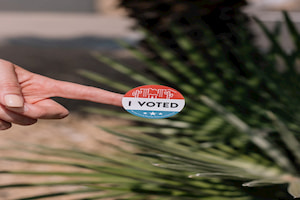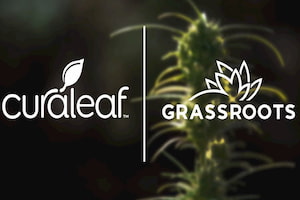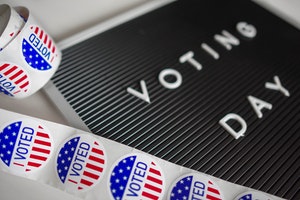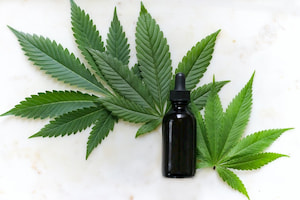
Cannabis-infused edibles may soon be legal in Hawaii after the state legislature passed a bill to allow the sale of edible products in dispensaries. The popularity of cannabis edibles among consumers could provide a significant boost to legal marijuana sales in Hawaii and create new opportunities for cannabis businesses with licenses to operate in the state.
Hawaii Legislators Pass HB 2097 and Allow for Sale of Marijuana Edibles
Hawaii currently has a total of eight (8) medical cannabis licensees, with those approved operators being licensed to sell medical marijuana at dispensaries that meet certain zoning and other legal requirements. Thanks to a new law, the operators may soon be allowed to sell cannabis edibles in addition to other medical cannabis products.
Hawaii created a Medical Marijuana Dispensary Program in 2015, established a dispensary system for the legal purchase of medical cannabis in 2016, and began selling medical cannabis at dispensaries in 2017. However, dispensaries were not permitted to sell cannabis edibles such as gummies, cookies, brownies, and chocolate bars. The reluctance of Hawaii lawmakers to allow edible products stemmed from a fear that marijuana-infused candies might appeal to young children and result in some kids accidentally consuming cannabis.
The Hawaii State Legislature recently reconsidered its stance on edible products and officially passed legislation to allow for the sale of cannabinoid-infused edibles at dispensaries in the state. Although the legalization of cannabis edibles for medical use had widespread support among legislators in Hawaii, it was not a foregone conclusion that the bill would pass in 2020. That’s because the COVID-19 pandemic shortened this year’s Hawaii legislative session and made it difficult for state lawmakers to convene and debate the proposed legislation.
HB 2097 Also Authorizes Remediation of Cannabis Products in Hawaii
HB 2097 does more than just legalize cannabis edibles in Hawaii. The bill begins with an introduction that states its three purposes:
- Authorizing licensed medical marijuana dispensaries to manufacture and distribute edible cannabis products.
- Authorizing the Hawaii Department of Health (DOH) to consider processes that may allow cannabis or manufactured cannabis products that fail testing to be remediated. This means that cannabis must meet certain decontamination standards before it can be sold on the consumer market in Hawaii.
- Authorizing the Hawaii Department of Health (DOH) to allow licensed dispensaries to provide educational and scientific information and to sponsor events related to medical cannabis.
Edibles Offer Alternative Way to Consume Medical Cannabis
Randy Gonce, the Hawaii Cannabis Industry Association program director, commented on HB 2097 in a press release and called the law’s passage “a victory for the state’s 30,798 registered medical cannabis patients.” Gonce specifically addressed the introduction of edibles to the Hawaii cannabis market by observing that “coronavirus has prompted more patients to seek ingestible forms of cannabis to replace inhalation due to concerns about lung health.”
The hope among proponents of the new law is that patients who use medical cannabis to treat serious health conditions will benefit greatly from being able to consume edibles instead of smoking or inhaling medical marijuana. The Hawaii Cannabis Industry Association (HCIA), an advocacy group for the state’s legal cannabis industry, praised lawmakers for passing HB 2097 and noted that the law will provide medical cannabis patients with “alternative ways to take their medication other than inhalation.”
When Will Hawaii Consumers Be Able to Buy Cannabis Edibles?
The passage of the edible legislation is not the end of the story. The bill has been sent to the desk of Hawaii Governor David Ige, who will have to decide whether to sign the bill into law or reject it. There is still some question about whether Ige will ultimately approve the bill because he has resisted cannabis policy reform attempts in the past.
The new law is technically supposed to take effect on January 1, 2021, but the Hawaii government has not yet established a timeline for introducing cannabis edibles to dispensaries. If and when the governor signs the bill into law, the Hawaii Department of Health (DOH) will then need to create rules for how, when, and under what circumstances cannabis edibles can be sold in Hawaii. This must happen before medical marijuana dispensaries can start stocking shelves with edible and drinkable marijuana products because HB 2097 specifically stipulates that edibles can be only manufactured and distributed within the state “under certain conditions.”
What Effect Will Edibles Have on Hawaii’s Cannabis Market?
The legal cannabis market in Hawaii is expected to generate up to $20 million in total sales revenues in 2020. Edible cannabis products could help operators generate even greater revenues by giving consumers in Hawaii even more ways to consume cannabis. This could be especially helpful for medical marijuana patients who have concerns about smoke inhalation or who worry about the potentially harmful effects of vaping. Additionally, many people believe that ingesting cannabis through edibles can create a longer-lasting high for the user. As a result, many Hawaii cannabis operators believe that there will be a high demand for cannabis edibles the moment they are introduced to state-licensed dispensaries.
Contact Scythian Cannabis Real Estate Today
Scythian Real Estate is a full-service real estate partner that provides assistance to cannabis operators who are looking to expand into Hawaii or other thriving U.S. cannabis markets. Scythian already works with some of the country’s largest cannabis operators, including Curaleaf and The Green Solution.
For more information about how Scythian might be able to help your cannabis company, email Scythian Real Estate today.
PLEASE NOTE THAT THIS BLOG IS NEITHER AN OFFER TO SELL NOR A SOLICITATION OF AN OFFER TO BUY SECURITIES IN SCYTHIAN REAL ESTATE FUND.









